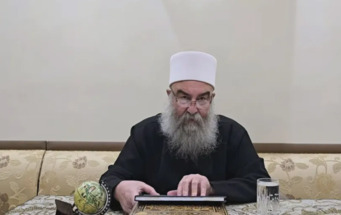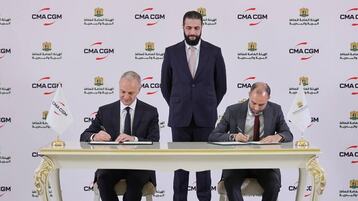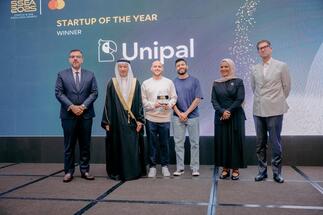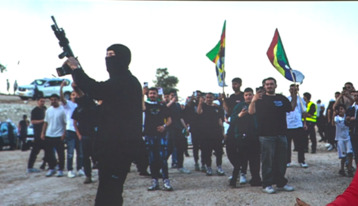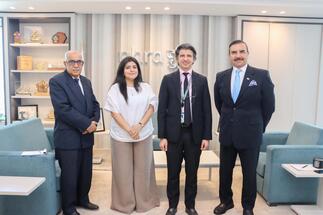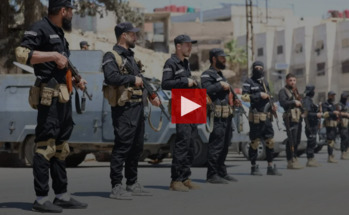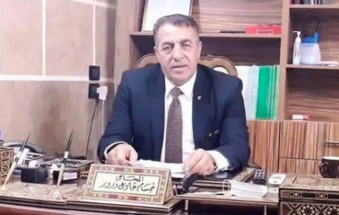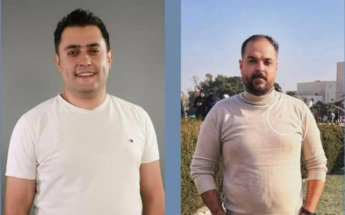-
Two hundred steps and thirty-eight bodies
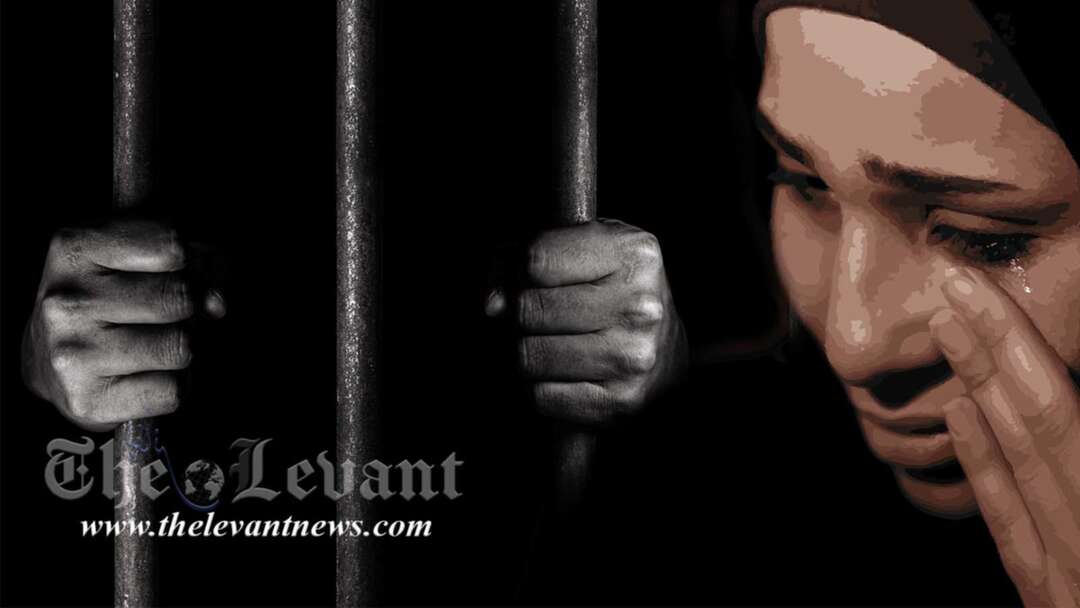
Forcibly disappeared and forgotten between the echo of screams of pain filling the corridors of prisons, Sounds leak behind prison bars to tell their jailers that they are still resisting.
The arrests affected Syrian women and peaceful activists during the Syrian revolution, during which they were subjected to various types of physical and psychological torture through beatings, electrocution, walking over the bodies of detainees, and even rape, methods of torture varying between the detainees, because the regime's soldiers do not distinguish between a teenager, a woman, or an older woman.
Hind, 34, recounts the incident of her arrest from a checkpoint of the regime in October 2012 when she was visiting to check on her house that was bombed by Syrian air forces in the southern region of Damascus.
As wolves above prey, the security forces gathered at the checkpoint when I was arrested, and one of them took me to an abandoned house to search me and look for anything that could condemn me, moments from the search that contained glimpses that promised me what would come next. The officer handcuffed me and took me to another checkpoint, where one of the officers was present.
Hind continues: On the way back, the scene was horrific. The bodies of the youth filled the outskirts of the road, some were charred, others have swollen, and the traces of bullets were visible on their bodies. It looks like field executions. I muttered with a trembling voice, but the soldier's voice quickly interrupted, ordering me only to watch where I step.
Two hundred steps and thirty-eight bodies are the distance of the road, and we reached another roadblock, the words did not stop the slapping of that officer who hit me on the face, What is your name? Hind …. He asks on his handheld transceiver if I was wanted by a security branch, and what was my crime? I rise to my silence in the face of the officer and his officers, then say shut up and write the names of all your family, “It is a crime that I came to an area crowded with terrorists," so the officer told me.
They put me alone in a prefabricated room at the checkpoint for an hour and a half, and one of the officers came saying either you confess or we will kill you here without anyone knowing, his shocking phrase was mixing with the words of the officers outside "this girl saw everything so how can we let her live."
I did not admit anything and did not fear death despite the horrors that I saw. Meanwhile, another officer came and asked me to prostrate, then put my head on the floor to step on it with all his strength. At the same time, he insulted me with the ugliest phrases and threatened me with rape, and when it started getting dark, an officer was ordered to take me to one of the security branches in Damascus.
Five officers took me on foot. I no longer counted the steps interrupted by the sound of soldiers or the sounds of shelling and bullets; there was no use. We reached an unknown place with an armored military vehicle, and they put me handcuffed in it, their laughter and looks seemed to suggest what I feared, the great disaster. Someone fixed my body and closed my mouth so that the rest of the officers would alternately rape me brutally and barbarically before I lost consciousness, but their conversations shocked me, “aren’t you done yet? It is my turn.”
I woke up in the morning to the voices of the officers requesting that I prepare myself to go to the branch, and when I arrived at the Military Security Branch in a deplorable state, my clothes were torn, and the bruises on my body told what happened to me that night. The detainees in the dormitory tried to help me and calm me, but every time I would wake up, I would see the nightmare I lived, and I would be back into my coma.
Three days later, I was taken to the investigation; I complained to the investigator about what happened to me. I told him the names of the officers who raped me, and in exchange for my release he asked me to sign a pledge not to mention their names, and not to tell any media or even my family and threatened to arrest my entire family if I uttered a word, and he promised me to punish them.
I left the branch heading to the Ghouta area, fearing that my family would know what happened to me. I was afraid they would get arrested if I was with them, and my fear was the biggest fear of shame that these criminals inflicted upon me.
I stayed in the Ghouta area with a friend for two months, during which I received treatment at the field hospital in the city of Irbeen, during which I was communicating with my family and reassuring them that I was okay and hiding for fear of pursuing security. Until the conditions in Ghouta deteriorated, the bombing intensified, and my father urgently asked to see me, so I made the decision to return to Damascus again.
On December 5, 2012 I gathered my belongings and went to Damascus, at the gate checkpoint and like the rest of the people my mobile phone was searched. Minutes of inspection Then the soldier says, “arrest her.” What a Disaster, I am wanted for Branch 227, one of them handcuffed me and put a gag on my eyes and took me in a military vehicle to the branch again.
During the investigation, the investigator asked me to confess to the financing of terrorism, and to receiving large sums of money from Saudi Arabia and the Gulf states, and to rat on people I had never heard of before.
He threatened me that I would die inside the branch when I told him that I did not do what he mentioned. Here the journey of torment began, it was cold, he asked me to take off my coat and then put me in a large barrel filled with water, and whenever he took me out he hit me with a whip and then put me in front of a fan to freeze. This was not the only means of torture. Also, electricity struck my body during interrogation. I could no longer endure more anguish and pain. I confessed to them what they wanted to relieve my body a little.
Sixty days later, I was transferred to Branch 291 in the Kafr Souseh area, then to Branch 215, where I could see the bodies of young men thrown in the corridors. Death in the basements of the security branches was of no value, and psychological torture was more painful than physical pain.
I stayed there for 45 days, moving between the two branches until I was transferred to Adra prison to spend the rest of my days there.
I was brought before a terrorism court judge, and he arrested me for the criminal court without allowing me to defend myself, and without paying attention that all the confessions in his hands were taken under torture.
I got out of prison at the end of 2014, as part of a reconciliation between the regime and the dignitaries of the area where I used to live. On that day, one of the officers approached me and whispered in my ears, "You are Hind?” Yes sir. I have a surprise for you”
He took me to a nearby bus crowded with women who would go out with us in that deal, to see my sister, who had stopped visiting me in prison, among these skinny detainees wearing torn clothes, she had been arrested because of her frequent visits to me.
Three days after we were released from prison were enough to escape a homeland ruled by criminals. I traveled to Turkey with my family for fear of being arrested again.
It is worth mentioning that the Syrian Network for Human Rights has documented that the Syrian regime forces arrested at least 11,850 women, from March 2011 until the beginning of the year 2017, of whom about 6,580 women are still under arrest or enforced disappearance in detention centers of the Syrian regime forces.
The file of the detainees is considered a pressure card used by the Syrian regime to pressure the international community. Despite all the violations that took place and still occur in prisons, neither the United Nations nor international human rights organizations have been able to condemn the regime for its crimes or even reveal the fate of a detainee or enforced disappearance.
The most significant constraint for the detainees remains that psychological pain and the memory that may accompany them throughout life, some of whom overcame their circumstances, and others still live the darkness behind the bars of the prison.
Tags
You May Also Like
Popular Posts
Caricature
BENEFIT Sponsors BuildHer...
- April 23, 2025
BENEFIT, the Kingdom’s innovator and leading company in Fintech and electronic financial transactions service, has sponsored the BuildHer CityHack 2025 Hackathon, a two-day event spearheaded by the College of Engineering and Technology at the Royal University for Women (RUW).
Aimed at secondary school students, the event brought together a distinguished group of academic professionals and technology experts to mentor and inspire young participants.
More than 100 high school students from across the Kingdom of Bahrain took part in the hackathon, which featured an intensive programme of training workshops and hands-on sessions. These activities were tailored to enhance participants’ critical thinking, collaborative problem-solving, and team-building capabilities, while also encouraging the development of practical and sustainable solutions to contemporary challenges using modern technological tools.
BENEFIT’s Chief Executive Mr. Abdulwahed AlJanahi, commented: “Our support for this educational hackathon reflects our long-term strategic vision to nurture the talents of emerging national youth and empower the next generation of accomplished female leaders in technology. By fostering creativity and innovation, we aim to contribute meaningfully to Bahrain’s comprehensive development goals and align with the aspirations outlined in the Kingdom’s Vision 2030—an ambition in which BENEFIT plays a central role.”
Professor Riyadh Yousif Hamzah, President of the Royal University for Women, commented: “This initiative reflects our commitment to advancing women in STEM fields. We're cultivating a generation of creative, solution-driven female leaders who will drive national development. Our partnership with BENEFIT exemplifies the powerful synergy between academia and private sector in supporting educational innovation.”
Hanan Abdulla Hasan, Senior Manager, PR & Communication at BENEFIT, said: “We are honoured to collaborate with RUW in supporting this remarkable technology-focused event. It highlights our commitment to social responsibility, and our ongoing efforts to enhance the digital and innovation capabilities of young Bahraini women and foster their ability to harness technological tools in the service of a smarter, more sustainable future.”
For his part, Dr. Humam ElAgha, Acting Dean of the College of Engineering and Technology at the University, said: “BuildHer CityHack 2025 embodies our hands-on approach to education. By tackling real-world problems through creative thinking and sustainable solutions, we're preparing women to thrive in the knowledge economy – a cornerstone of the University's vision.”
opinion
Report
ads
Newsletter
Subscribe to our mailing list to get the new updates!

